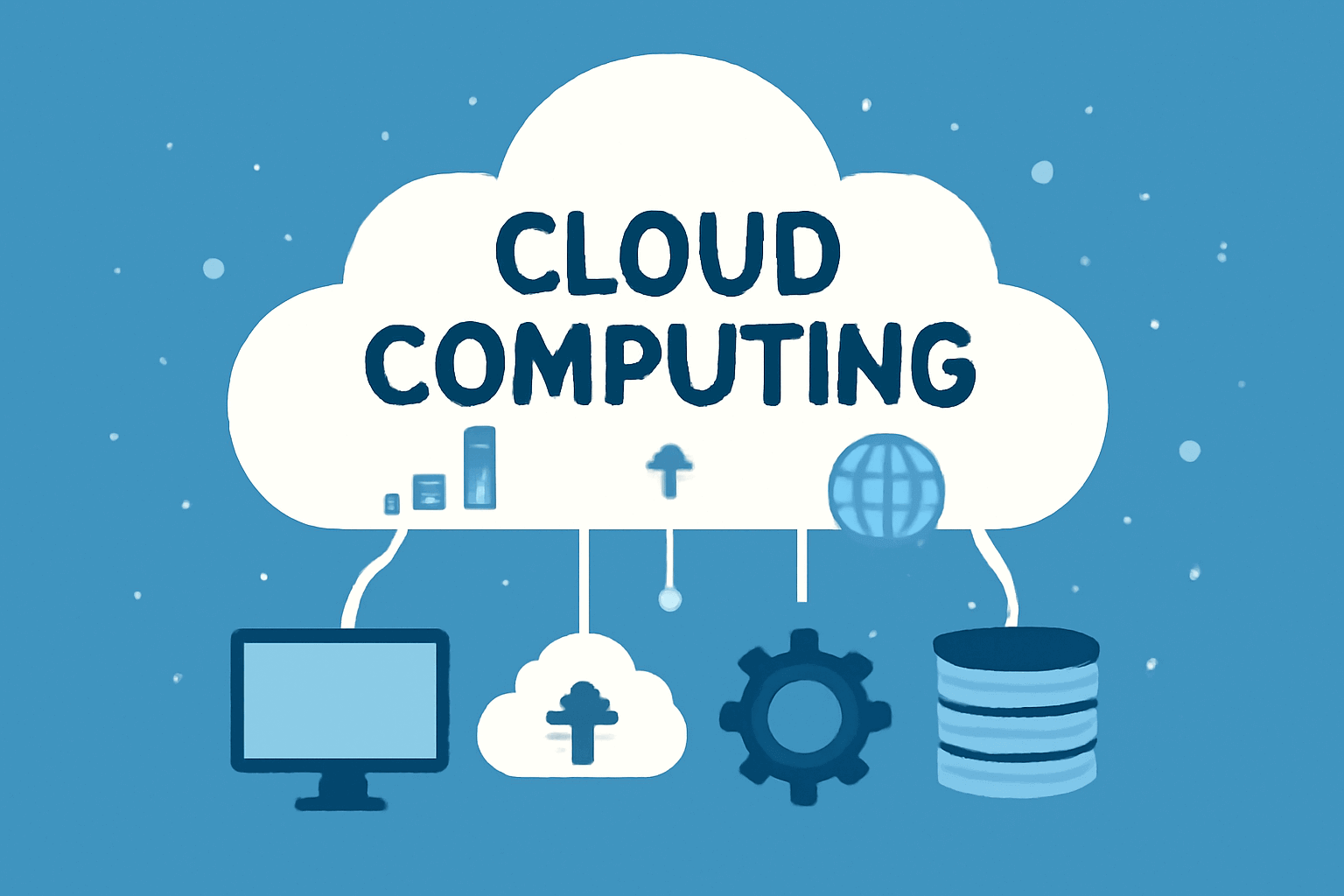Introduction to Cloud Computing: What You Need to Know
In today’s fast-paced digital world, the term “Cloud Computing” has become a household name. Whether you’re an individual using online storage or a business adopting complex data systems, cloud computing is transforming how we interact with technology. But what exactly does cloud computing mean, and why has it become so essential? This comprehensive guide will help you understand cloud computing, its types, benefits, and its growing impact on businesses and individuals alike.
What is Cloud Computing?
At its core, cloud computing refers to the delivery of computing services—including servers, storage, databases, networking, software, and more—over the internet (the cloud), rather than from a local server or personal computer. This allows users and businesses to access software and data from any device with an internet connection, anywhere in the world.
The Key Components of Cloud Computing
Cloud computing can be broken down into several components, each of which plays a crucial role in its functionality:
- Infrastructure as a Service (IaaS): This provides virtualized computing resources over the internet, such as virtual machines, storage, and networks.
- Platform as a Service (PaaS): This offers hardware and software tools to developers for building applications without managing the underlying infrastructure.
- Software as a Service (SaaS): This provides software applications over the internet on a subscription basis, without requiring local installation (think Google Docs, Salesforce, or Microsoft 365).
Types of Cloud Computing
Cloud computing services are offered in three primary models:
- Public Cloud: This is owned and operated by third-party cloud providers like Amazon Web Services (AWS), Microsoft Azure, and Google Cloud. They provide resources to the public, with users paying only for what they use.
- Private Cloud: A private cloud is used exclusively by one organization. It offers more control, security, and customization but at a higher cost.
- Hybrid Cloud: A combination of both public and private clouds, allowing data and applications to be shared between them. This model offers greater flexibility and more deployment options.
Why is Cloud Computing Important?
The importance of cloud computing can’t be overstated. Its rise is largely driven by the following key benefits:
- Cost Efficiency: Cloud computing eliminates the need for businesses to purchase expensive hardware and maintain IT infrastructure. Instead, they can pay for what they use and scale as needed.
- Scalability: The cloud allows businesses to easily scale their resources up or down based on demand, without having to worry about hardware limitations.
- Flexibility and Accessibility: With cloud computing, users can access their data and applications from anywhere, whether they’re on a laptop, smartphone, or tablet. This makes remote work and collaboration easier than ever.
- Security and Disaster Recovery: Leading cloud providers implement robust security measures to protect data. Additionally, cloud services often include built-in disaster recovery options, ensuring data is protected even in case of a system failure.
- Automatic Updates: Cloud service providers manage updates and security patches automatically, reducing the burden on IT teams and ensuring systems are always up-to-date.
The Impact of Cloud Computing on Businesses
Cloud computing is a game-changer for businesses of all sizes. Here’s how:
- Improved Collaboration: Teams can work on the same files or projects in real-time, no matter where they are located.
- Better Data Management: Storing data on the cloud reduces the risk of data loss and offers powerful analytics tools for better decision-making.
- Increased Efficiency: With cloud-based applications, employees can work faster, with seamless integrations and fewer technical roadblocks.
- Innovation and Growth: Cloud computing allows businesses to experiment with new software and technologies without heavy investments in physical infrastructure, encouraging innovation.
Challenges and Considerations in Cloud Computing
While cloud computing offers numerous advantages, it also presents certain challenges that businesses and individuals need to consider:
- Data Security: Storing sensitive information on the cloud means relying on third-party providers to secure it. Ensuring your cloud provider has robust security protocols in place is critical.
- Downtime and Reliability: Despite the reliability of cloud services, outages do occur. Businesses should have contingency plans to minimize disruptions in case of downtime.
- Vendor Lock-In: Different cloud providers use different technologies, which can make it difficult to switch vendors without incurring significant costs or disruptions.
Future of Cloud Computing: What’s Next?
The future of cloud computing looks incredibly promising, with continuous advancements and innovations on the horizon. Here are a few trends to watch for:
- Edge Computing: This emerging technology involves processing data closer to the source (e.g., on devices rather than in centralized data centers), which can improve speed and reduce latency.
- Artificial Intelligence and Machine Learning: Cloud providers are incorporating AI and ML tools into their services, allowing businesses to leverage advanced data analytics and automation.
- Serverless Computing: This approach eliminates the need for server management, allowing developers to focus solely on building applications.
Conclusion: Embracing the Cloud for the Future
Cloud computing has already revolutionized the digital landscape, offering unmatched flexibility, scalability, and cost-efficiency. Whether you’re a small business or a large enterprise, adopting cloud technology is no longer optional—it’s essential for staying competitive in today’s digital economy. By understanding the fundamentals of cloud computing and staying ahead of the latest trends, businesses can unlock their full potential, improve productivity, and enhance security.
So, if you’re not already taking advantage of the cloud, it’s time to start! Embrace cloud computing, and open the door to endless possibilities in the digital age.
FAQs on Cloud Computing
Q1: How does cloud computing improve security?
Cloud providers invest heavily in security measures like encryption, multi-factor authentication, and compliance with global security standards. These measures help keep data secure and accessible only to authorized users.
Q2: Can I use cloud computing for personal use?
Absolutely! Cloud computing offers a variety of services for personal use, including file storage, email, and productivity applications like Google Drive and Dropbox.
Q3: What are the main cloud service providers?
The biggest players in cloud computing include Amazon Web Services (AWS), Microsoft Azure, Google Cloud, IBM Cloud, and Oracle Cloud.
Q4: How is cloud computing used in healthcare?
Cloud computing helps healthcare organizations store and manage patient data securely, facilitating better collaboration among doctors, reducing paperwork, and improving overall patient care.
By following the principles of scalability, flexibility, and security, cloud computing continues to evolve, making it an integral part of modern technology. Stay informed, and you’ll be able to harness its full potential.





 5G Technology: Revolutionizing Connectivity and Shaping the Future
5G Technology: Revolutionizing Connectivity and Shaping the Future